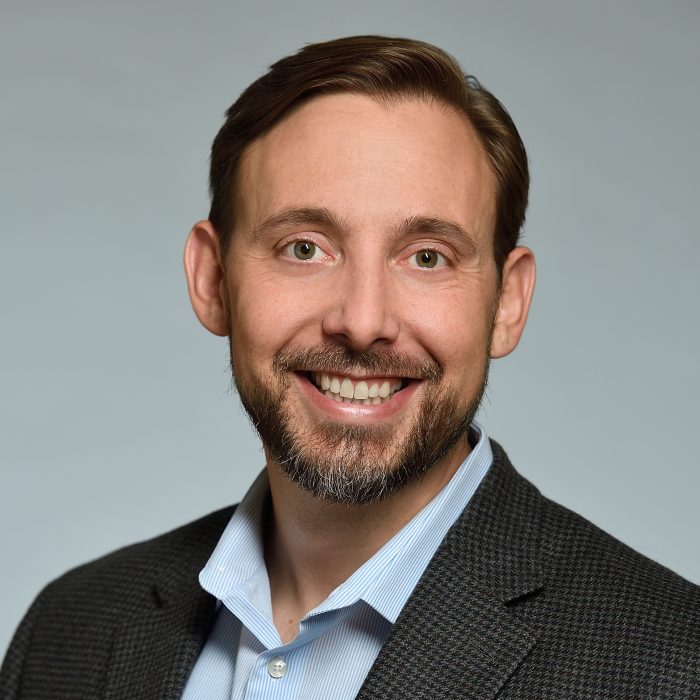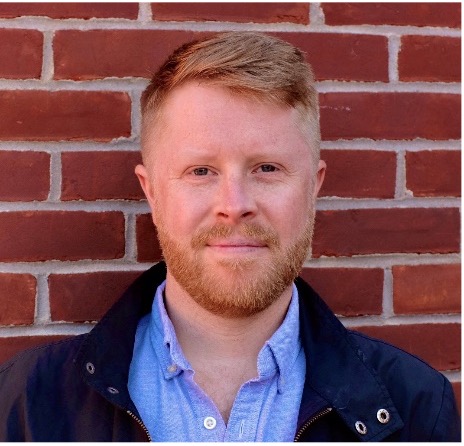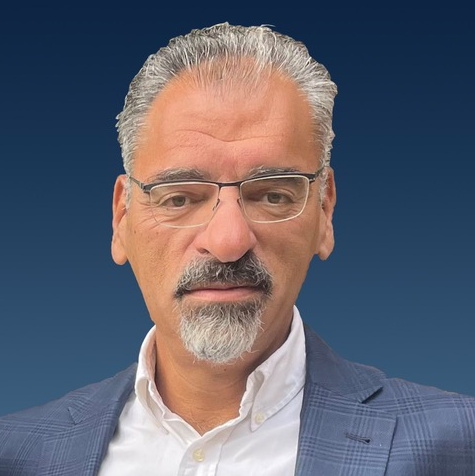The Berman Institute at ASBH 2023
Berman Institute to Receive 2023 ASBH Cornerstone Award
The Johns Hopkins Berman Institute of Bioethics has been selected to receive ASBH’s 2023 Cornerstone Award, the Society’s highest honor given to an institution. The Cornerstone Award recognizes outstanding, enduring contribution(s) by an institution that has deeply enriched and/or helped shape the direction of the field of bioethics. The Award will be presented to the Institute’s Director, Jeffrey Kahn, at the Members’ Meeting on October 13 during the Annual Conference.
The Berman Institute will be well represented at the 25th annual meeting of the American Society for Bioethics and Humanities (ASBH), “Engaging the Past to Energize the Future: Creating Space for Inclusive Public Discourse,” with a group of faculty, fellows, and students scheduled to present. The full program is available online. Follow the meeting on twitter using #ASBH23
Preview our diverse presentations below by:
All times listed are Eastern.
Thursday, October 12
ELSI Affinity Group: Funding Opportunities to Study Ethical, Legal, and Social Implications of Genomics (7-8 a.m.) - Kadija Ferryman
Research Participation as Labor: Models for Respect, Inclusion, and Compensation (9:45-11 a.m.) - Amelia Hood, Marielle Gross
Panel Presentation: Research Participation as Labor: Models for Respect, Inclusion, and Compensation
Presenters: Amelia Hood, Marielle Gross, Isaac Chan, Samantha Horn
The historical exclusion of many populations from research has had significant consequences on the health outcomes of these populations. Whether they were excluded as a policy (e.g., people with disabilities) or out of convenience (e.g., women of reproductive age), resulting health disparities represent failures of both epistemic and structural justice—skewing the medical evidence base and the distribution of benefits and burdens of research participation. In an effort to facilitate broader inclusion and more generally ethical oversight of research processes, many funders now require researcher accountability to participants. These requirements typically call for participant-advocates to have a seat at the table—as grantees, advisors, and/or co-investigators to research.
Participant engagement throughout the research process can facilitate transparency, respect, and accountability of researchers to the participants they rely on. However, models for engagement often view participant-advocates as minimally- or un-paid add-ons to meetings that happen within the niche, academic, and frankly, isolated lab setting. Advocates are often professional proxies for the actual research population, presenting additional challenges of representation and accountability.
This panel explores alternative approaches that fundamentally challenge these models, and present alternatives that genuinely restructure the research process to provide meaningful engagement and accountability to all research participants, as well as advocates. Panelists—an ethicist, a biomedical researcher, and a professional patient-advocate—will explore technologies, organizational structures, and engagement activities that promote these values and pursue more ethical and just research endeavors.
Opening Luncheon (12:45-2:15 p.m.)
Opening Luncheon
Visit the Berman Institute table in the Networking Hall
The Effect of COVID-19 on Vulnerable Populations in the US and UK: An International Scoping Review (4–5:15 p.m. EDT) - Audrey Funwie, Zackary Berger
The Effect of COVID-19 on Vulnerable Populations in the US and UK: An International Scoping Review
Session: COVID and Vulnerable Populations
Presenters: Audrey Funwie, Zackary Berger, Mehrunisha Suleman
Context: The United States and the United Kingdom are characterized by underfunded public health in the context of racist systems. We reviewed differences in Covid-19 outcomes between groups in the US and UK and compared intergroup differences between the two countries.
Methods: The scoping review analyzed articles published in English during the Covid-19 pandemic focusing on morbidity and mortality in the US or the UK. Using Scopus and PubMed, research articles were chosen based on titles, abstracts, and relevance to the research question. Data were extracted by the first author and reviewed by senior authors. 63 studies met the inclusion criteria.
Results: Two studies compared the US and UK. One found that in both countries, minority status is an important social determinant of health (SDOH) of Covid-19 related health outcomes. Another found that the risk of confirmed infection was higher in minority populations in both countries, compared with their respective White peers. Asian ethnicity is subject to different definitions in these countries. Individual articles focusing on either the US or the UK also found that, in both countries, essential workers were impacted; those with disabilities and people living in multigenerational families were more often affected by Covid-19 related comorbidities.
Discussion: Literature indicates that in the US and the UK, non-White populations were more affected by Covid-19, possibly due to the association of SDOH with racist systems. In both countries, racial definitions need further research, and data focused on LGBTQ+ groups and people with disabilities is lackin
A Tool for Ethical Analysis of Persuasion and Influence in Genetic Counseling Communication (4–5:15 p.m. EDT) - Mary Catherine Beach
A Tool for Ethical Analysis of Persuasion and Influence in Genetic Counseling Communication
Session: Clinical Ethics Flash Session
Presenters: Chenery Lowe (presenter), Leila Jamal, Debra Roter, Mary Catherine Beach
Background: As genetic counseling is incorporated into medical settings where genetic results influence health recommendations, the traditional ethos of “non-directiveness” becomes increasingly inadequate to address the range of clinical uses of genetic information. Whether and to what extent deliberate influence and persuasion should play larger roles in genetic counseling is an underexplored question. Historically, genetics professionals have been hesitant to embrace influential communication as an ethically justifiable component of genetic counseling. Deliberate and unintentional forms of influence used are poorly characterized and their ethical implications are unclear. While most agree that persuasive communication should be ethically justified, patient-centered, and equitable, there has been limited conceptual and empirical investigation into what this should look like in clinical communication.
Objective: The objective of our project is to develop a framework and coding system to describe and evaluate providers’ and patients’ uses of influential communication in genetic counseling sessions .
Methods: Work is underway to create a framework for identifying influential communication strategies based on a review of empirical studies and conceptual literature. We will develop a coding system to apply this framework to transcripts from 138 standardized genetic counseling encounters. In this session, we will describe the findings from this analysis and discuss their normative implications.
Implications: This work is an initial step towards developing an evidence-based approach to describe uses of influence reliably and consistently in genetic counseling. We intend for our approach to be applicable to empirical and normative clinical communication research in both genetic counseling and other clinical settings.
Transfusion Refusals in Pediatrics: From Shared Decision Making to Court Orders (4–5:15 p.m. EDT) - Yoram Unguru
Transfusion Refusals in Pediatrics: From Shared Decision Making to Court Orders
Session: Clinical Ethics Flash Session
Presenters: Liza-Marie Johnson, Kim Sawyer, Yoram Unguru, Deena Levine
In pediatrics, parents (legal guardians) are the primary medical decision-makers for their minor children: they know their children well and are most inclined to act in their best interest. As autonomous adults, parents have wide latitude to refuse recommended medical treatment for themselves, however this same broad autonomy does not extend to their children. Pediatric providers have a fiduciary responsibility to a child’s health and well-being, intervening when parental decision-making places a child at risk of serious harm. When parental decision-making conflicts with provider recommendations, there is often a role for open, honest discussion with families in hopes of identifying mutually acceptable solutions.
This session will examine parental refusals when transfusion of a blood product is medically indicated or reasonably anticipated, an event which is more common among families whose religious affiliation is as a Jehovah’s Witness (JW). We will review the ethical principles commonly applied to evaluations of parental decision-making and briefly present original data from a retrospective review of JW data from over 50 years. We will present a shared decision-making approach for working with JW families which we believe fosters communication and creates inclusive spaces for dialogue with families. Real-world pediatric cases, including some involving adolescents as additional decision-makers, will demonstrate the range of possible solutions for managing conflicts around transfusion refusals in pediatrics, including circumstances when court orders may be recommended. Although we focus on transfusion refusals, participants can apply the material presented in this session to navigating other refusals of recommended therapy in pediatrics.
For a Materialist Bioethics (8-9:15 a.m.) - Jonathan Shaffer, Zackary Berger
For a Materialist Bioethics
Session: Theoretical Foundations of Clinical Ethics
Presenters: Jonathan Shaffer, Gabriela Arguedas, Zackary Berger
There is a spectre haunting bioethics—the spectre of materialist analysis and politics. While American bioethics prides itself on interdisciplinarity, mainstream bioethics literature and institutional academic training remains remarkably constrained. Principalism, while pragmatic in institutionally applied bioethics, remains overwhelmingly dominant within the broader academic literature and curricula of undergraduate and graduate-level training for bioethics. Largely absent from the conversation, however, are the ways extraordinary material inequalities in access, ownership, labor and political power — and the attendant capitalist profit motive shaping these inequalities — produce wildly varying health outcomes within and between countries. Dialogue with empirical and theoretical social sciences have contributed to advancing important feminist, relational, and care-centered approaches to bioethical problems. Discussion of Marx, however, is muted if found at all. This paper is a forceful call for the development of a robust materialist bioethics.
We begin by producing a brief historical view of the advent and trajectory of disciplinary bioethics. We engage in empirical analysis of the bibliometrics of the accumulated bioethical and related literature, including citation network analysis. We also summarize the dominant frames of bioethical syllabi for the largest bioethics masters degree programs in the United States to demonstrate the hegemony of a narrow principalist approach within these discipline-reproducing structures. We then trace an outline of a materialist bioethics program of research and practice. Finally, this paper seeks to decenter the mainstream vision of bioethics by advancing the ideas of authors from regions and traditions largely overlooked.
Using Past Injustices to Correct Future Harms: Revising the Criteria for Physician-Aid-in-Dying (8-9:15 a.m.) - Emily Walsh
Using Past Injustices to Correct Future Harms: Revising the Criteria for Physician-Aid-in-Dying
Session: End-of-Life Care and Physician-Aid-in-Dying
Presenter: Emily Walsh
A new subset of cases has arisen due to the proposed extension of physician-aid-in-dying (PAD) to psychiatric disorders: cases of “poverty-induced” depression. PAD is morally permissible if a patient: (i) experiences unbearable suffering, (ii) has a hopeless prognosis, and (iii) is competent to make a decision. Parity theorists of PAD argue that if the criteria for PAD are correct, individuals with mental illnesses should be allowed to request PAD under certain conditions. The purpose of this talk is to suggest that parity theorists face a moral dilemma: their accounts allow for poverty-induced depression cases to be candidates for PAD, which could deepen social injustice and perpetuate the oppression of the most socially vulnerable. Historical past injustices show us that PAD is a medical solution not fit to solve social injustices. This argument recommends that all three elements of PAD criteria need revising not to permit PAD to become a viable solution for social injustices in the future.
Understanding the Autonomy of Transgender Patients: A Broader Appreciation for Gatekeepers (9:30-10:45 a.m.) - Zackary Berger
Understanding the Autonomy of Transgender Patients: A Broader Appreciation for Gatekeepers
Session: Vulnerability in Clinical Decision-Making
Presenter: Zackary Berger
While bioethicists define autonomy as self-governance without coercion, how self-governance actually proceeds in the constraints of daily life, the external environment, and varying life perspectives requires consideration. In the care of transgender patients, those providing gender affirming treatment are called upon to serve as gatekeepers to the legitimacy of the patient’s wishes. Billing entities, coding reviewers, the lay press and politicians ask whether transgender people are making autonomous decisions regarding this treatment.
The philosophical literature on autonomy understands the foundation of self-governance in two ways. The coherentist approach requires that decision-making be consistent or harmonious with the patient’s point of view on the action, which describes some transgender patients but not all, as one’s own self-representation of gender can change over time. According to the externalist approach, a patient only governs themselves if their decsion-making is responsible to external reasons; but, again, there are transgender patients whose gender-affirming care is done in the teeth of negative external incentives. What is lacking in the autonomy literature, especially regarding transgender patients, is a notion of cultural, economic, and social influences, as well as material inequities, which provide not reasons in themselves but a sense of self that might not be either primarily responsive to external reasons or consistent with regard to internal point of view.
To be transgender in the context of other people being transgender should be recognized as an equally legitimate path to recognize autonomy in gender-affirming care.
Integrating the Ethics of Trust into Bioethics: Examining the Prospects and Challenges (9:30-10:45 a.m.) - Joseph Jebari
Integrating the Ethics of Trust into Bioethics: Examining the Prospects and Challenges
Session: Ethics of Trust
Presenter: Joseph Jebari
Trust is considered foundational to the doctor-patient relationship and plays a central role in shaping patient-provider interactions across a range of temporal and institutional scales. Yet, despite its importance, most bioethical frameworks do not explicitly engage with the ethics of trust or provide a systematic account of how to integrate considerations of trust into ethical decision-making. I argue that an important reason for this omission is that considerations of trust feature differently in our decision-making than other kinds of considerations (e.g., beneficence or autonomy), meaning that they cannot be integrated into bioethical frameworks the same way as other considerations. More specifically, because trust is a feature of a relationship that can be gained or lost, the ethics of trust requires a special focus on how our decisions will affect our relationships with other people rather than how they will affect those people per se. This shift in focus adds a layer of complexity to the ethics of trust that is not well-handled by traditional bioethical frameworks. Accordingly, I propose an alternative, multi-level approach to integrating trust into bioethics that introduces trust as a higher-order regulatory parameter in ethical decision-making. In this role, considerations of trust would serve as a unifying basis for negotiating conflicts in first-order values and for developing decision architectures for healthcare providers. I conclude by discussing some examples of how this might work in practice, focusing in particular on how this proposal might help inform responses to the emerging crisis of trust in healthcare.
Health professionals’ beliefs in genetic determinism and their perspectives on the ethics of using COVID-19 host genomic information for decision-making during the pandemic (9:30-10:45 a.m.) - Sheethal Jose
Health professionals’ beliefs in genetic determinism and their perspectives on the ethics of using COVID-19 host genomic information for decision-making during the pandemic.
Session: Policy and Law Flash Session
Presenter: Sheethal Jose
Advances in host genomics research can play an important role in enabling precision medicine and precision public health approaches for the clinical management and public health control of the COVID-19 pandemic. The implementation of genetic testing for variants associated with infectious diseases raises several ELSI issues, including genetic determinism since several non-genetic factors influence exposure to and severity of COVID-19. As an important stakeholder group, health professionals (HPs) can provide key insights into these ELSI issues. A cross-sectional survey was fielded to understand how HPs view the value and ethical acceptability of using COVID-19 host genomic information (HGI) across 3 main decision-making contexts: (1) hospital-based clinical decisions, (2) public health decisions, and (3) workforce decisions. The survey also assesses HPs’ beliefs related to genetic determinism and their perspectives on non-genetic factors that influence COVID-19.
Based on preliminary results from 603 HPs, their demographics are mostly female (77%), White (78%), and work in a clinical setting (90%). A majority agree that it is ethically acceptable to use HGI to make decisions about patient admission (63%) and clinical care (84%) of COVID-19 patients; 73% agree that genetic screening has an important role to play in the public health control of COVID-19. Variation in these results may be a function of participants’ beliefs in genetic determinism. Understanding stakeholder perspectives and anticipating ELSI issues will help inform policies for hospitals and public health departments to evaluate and perhaps adopt host genomic technologies in an ethically and socially responsible manner during future infectious disease outbreaks.
Exemptions and Exceptionalism in Transgender and Intersex Healthcare (9:30-10:45 a.m.) - Theo Schall
Exemptions and Exceptionalism in Transgender and Intersex Healthcare
Panel Presentation
Panelists: Jacob Moses, Elizabeth Reis, Lisa Campo-Engelstein, Theo Schall
This panel explores how health policies have treated transgender and intersex people as exceptional cases and exempt from other domains of healthcare. Such policies have exacerbated disparities in access to care and produced bodily harm. Presenter 1, a health policy researcher, reviews the recent slate of state legislation restricting access to gender-affirming healthcare, analyzing how these bills have cleaved pediatric and adult care from one another. Presenter 2 and panel moderator, a historian and gender studies scholar, examines legislation that seeks to curtail gender-affirming healthcare for trans people while making exceptions for surgery and hormones for children born with intersex traits. Ironically, these are the same medical interventions denied to transgender children. Presenter 3, a feminist and queer studies philosopher, explores exceptionalism in sexual and reproductive healthcare access. Youth generally permitted to make their own decisions regarding sexual and reproductive health (e.g. contraception, STI screening) are required to obtain parental permission for gender-affirming care and fertility preservation—two treatments that disproportionately affect transgender and intersex youth. Presenter 4, a historian of medicine and science & technology studies scholar, considers how exceptional standards of evidence have been demanded for gender-affirming care for transgender people. Across successive iterations of standards of care guidelines, transgender health researchers have responded by hewing more closely to the precepts of evidence-based medicine in an effort to de-exceptionalize transgender healthcare. The session will invite attendees to share how exemptions and exceptionalism in LGBTQI health policy have affected their clinical practice.
Policymakers’ Unmet Desire for Ethicists (11 a.m.-12:15 p.m.) - Jeffrey Kahn
Policymakers’ Unmet Desire for Ethicists
Plenary
Speakers: Liz Walters, Adam Seth Levine, Jeffrey Kahn
Much has been written about the role that ethicists should play in the policymaking process. These conversations typically focus on the supply of ethical expertise. In this session, we approach this topic from the demand side and ask: What roles do policymakers want ethicists to have? In what ways do they already fulfill those roles, and to what extent is there an unmet desire for ethicists in the policymaking process? Going forward, how can and should ethicists engage in the policymaking process?
Members' Meeting and Awards Ceremony (2-3 p.m.) - Berman Institute to receive ASBH Cornerstone Award
Members’ Meeting and Awards Ceremony
The Johns Hopkins Berman Institute of Bioethics has been selected to receive ASBH’s 2023 Cornerstone Award, the Society’s highest honor given to an institution. The Cornerstone Award recognizes outstanding, enduring contribution(s) by an institution that has deeply enriched and/or helped shape the direction of the field of bioethics. The Award will be presented to the Institute’s Director, Jeffrey Kahn, at the Members’ Meeting.
Obligations are Overrated: Or, Why It’s Permissible to Travel to ASBH despite Climate Change (3:15-4:30 p.m.) - Travis Rieder
Obligations are Overrated: Or, Why It’s Permissible to Travel to ASBH despite Climate Change
Presenters: Travis Rieder, Sarah Raskoff
In a year marked by devastating heat waves, catastrophic fires, droughts and floods, and generally all manner of climate disasters, the question of how to live a morally decent life amidst climate change looms large. Our collective greenhouse gas emissions warm the planet and lead to massive harm, which makes our individual emitting actions seem to implicate us in one of the most serious moral problems humanity has ever faced.
Despite this sense (shared at least by environmentalists) that each of us is contributing to the problem, there is a well-known challenge to the idea that we could be obligated to refrain from any emitting action: in short, our individual contributions are so small—so insignificant—that they do not cause or meaningfully worsen any harm. Thus, although one might think that each of us should travel less in order to reduce our carbon footprint, it seems there is no justification for thinking that it’s wrong to, for instance, travel to Baltimore in order to attend ASBH.
Is that right? Do none of us flaunt our moral responsibilities by attending this conference? In this session, two speakers will articulate different arguments that bear on the answer to this question. One of us will rehearse an argument made in the animal ethics literature, which purports to show that we can (and do), in fact, have a duty to contribute to collectives that make a difference, even when our own individual contributions do not. The other will rehearse an argument from the climate literature suggesting that, while we can have moral reasons not to so contribute, we do not have duties, and so while it may be a good thing to forego conference attendance for environmental reasons, none of us is morally required to do so. From there, both speakers will address the question of whether their arguments can coexist: does a duty to go vegan imply a duty to forego conferences? If we have only reasons to reduce our carbon footprint, does that imply that no one has a duty to go vegan?
'Against Medical Advice' Discharges: Disparities in Post-Discharge Care and Outcomes (5-6:15 p.m.) - John Henry Brems, Jeremy Sugarman
“Against Medical Advice” Discharges: Disparities in Post-Discharge Care and Outcomes
Session: Bias and Disparities in Clinical Medicine & Ethics
Presenters: John Henry Brems (presenter), Aparna Balasubramanian, Jeremy Sugarman
Introduction: Against medical advice (AMA) discharges, which occur when a patient leaves the hospital prior to their medical team’s recommendation to do so, are frequent and associated with poor outcomes. Some prior qualitative evidence suggests that clinicians may feel less obligated to offer post-discharge care (e.g. referrals for outpatient follow-up) to patients who are discharged AMA than non-AMA. We sought to characterize patterns of discharge referrals for patients discharged AMA versus non-AMA after exacerbations of chronic obstructive pulmonary disease.
Methods: Using electronic health record data from 15,594 admissions, we compared referrals for post-discharge care and risk of 30-day re-admission between non-AMA versus AMA discharges.
Results: Compared to non-AMA discharges, patients discharged AMA were less likely to receive any referral for post-discharge care (26.5 vs 11.5%, p< 0.001) and were 43% more likely to be re-admitted at 30-days (p < 0.001).
Discussion: Our results raise important questions as to why patients discharged AMA receive discharge referrals less often than non-AMA discharges. For instance, this finding might reflect that clinicians cannot feasibly facilitate referrals if AMA discharges occur too quickly. Alternatively, as some prior evidence suggests, clinicians’ biases related to AMA discharges may contribute to sub-standard discharge practices. In considering the potential role of clinician bias, we emphasize the need for attention to the ethical principles of ‘respect for persons’ and ‘beneficence’ with AMA discharges—even if those discharges do not seem medically ideal compared to continued admission. Ultimately, we argue for a need to develop strategies to reduce adverse outcomes among those discharged AMA.
Thoracic Pork: Using Jurassic Park to develop examples of virtues-based research ethics for xenotransplantation (5-6:15 p.m.) - Olivia Kates
Thoracic Pork: Using Jurassic Park to develop examples of virtues-based research ethics for xenotransplantation
Session: Future Ethics
Presenter: Olivia Kates
During the climax of Steven Spielberg’s 1993 Jurassic Park, a velociraptor stalks two children in the visitor center. The predator’s shadow passes over a mural, briefly disappearing as it aligns with a painted raptor. Art mirrors life, but life is a lot scarier.
With award-winning effects, the film revels in showing dinosaurs to its audience, just as eccentric businessman John Hammond relishes the thought of sharing his creations. But even as Jurassic Park delights in dinosaurs and capitalizes on their spectacle, it tells a cautionary tale about greed, hubris, and naivete in the pursuit of transformative science. These lessons from art have applications in life: I use the popular storytelling in Jurassic Park to develop new areas of ethical inquiry into experimental xenotransplantation.
The complexity and novelty of xenotransplantation is unprecedented. Risks for treatment failure, treatment-related harm, and negative externalities from the intimate to the ecological scale are unknown and may exceed levels accepted in precedent human trial models. Not only research leaders, but every team member who might participate in patient selection, evaluation, or treatment, needs a useful ethical point of reference for understanding their involvement.
The shadow of Jurassic Park overlaps with the reality of xenotransplantation: high-risk, high-reward science; genetically modified animals; aspirations toward “sterility;” and fraught interactions between funders, regulators, researchers, workers, and consultants. Characters in the movie navigate these challenges, each bringing unique attributes and values. By examining these characters, I develop examples of virtuous traits and habits that would support ethical participation in xenotransplant research.
Berman Institute Reception (6-9 p.m.) - Maximon
Alumni and Friends of the Berman Institute are invited to our reception at Maximon in Baltimore’s Harbor East.
Contact Allison Christopher to RSVP.
Engaging Patients and the Public to Improve Future Research Conducted with Waivers of Informed Consent (7:30-8:45 a.m.) - Stephanie Morain
Engaging Patients and the Public to Improve Future Research Conducted with Waivers of Informed Consent
Panel Presentation
Panelists: Stephanie Morain, Emily Largent, David Wendler
There is growing interest in using embedded research methods, particularly pragmatic clinical trials (PCTs). Reviews of PCTs published between 2014 and 2019 found that nearly 10% were conducted with waivers of informed consent for research (“waivers”), and this number is increasing with time. Waivers are ethically justifiable and permitted under the Common Rule when certain conditions are met. However, their use presents ethical challenges. This panel will use empirical, normative, and case-based lenses to inform the ethical conduct of PCTs conducted with a waiver of consent.
Panelist One will provide background on PCTs, explain why waivers have become an increasingly prominent feature of them, and provide empirical data on patients’ and the public’s views on waivers. Panelist One will then argue that a fundamental ethical challenge arising when waivers are used is how to both demonstrate respect for participants, and to satisfy certain functions of consent in the absence of traditional consent processes. Building on this, Panelists Two and Three will discuss two potential means for resolving this challenge: community consultation and participant notification. Panelist Two will argue for the ethical importance of consulting with community representatives during the design-phase of PCTs and present a recent example of successful engagement with people living with dementia and caregivers on the topic of waivers. Panelist Three will discuss the ethical importance of participant notification when research is conducted with a waiver, which investigators often underestimate, outlining the goals and potential means of notification. There will be time for Q&A and discussion.
Children with complex chronic conditions; a neglected group in public policy decisions? Lessons learned from the pandemic in the UK and US context (7:30-8:45 a.m.) - Yoram Unguru, Rebecca Seltzer, Jeff Jones
Children with complex chronic conditions; a neglected group in public policy decisions? Lessons learned from the pandemic in the UK and US context
Panel Presentation
Panelists: Sapfo Lignou, Yoram Unguru, Rebecca Seltzer, Jeff Jones
Children with complex chronic conditions require care from a combination of different services and systems of care (e.g, health care, social services, education, etc) and are particularly vulnerable to public health interventions that may be introduced as a result of a pandemic.
The UK and the US have two distinct health systems shaped and driven by different social and political values. Despite differences in service delivery and pandemic impacts, challenges in meeting complex needs of children with chronic conditions are common across health and care systems. These challenges raise crucial but overlooked questions about health justice, such as: What are the responsibilities of the state and related public bodies towards this group? How should decisions be made about changes in service delivery, and what values and processes should inform these decisions? How can longstanding health inequalities, and prior disadvantages be avoided? How can children with complex chronic conditions and their families be treated fairly in situations where their needs cannot be fully met?
Viewed through the lens of “health justice,” this panel will discuss the ethical, practical, and systemic challenges associated with caring for children with complex chronic conditions , both in normal circumstances and during emergencies. The panel will also explore the idea of a new policy engagement model that could eliminate systemic weaknesses in meeting these children’s complex needs and inform more efficient and fair decisions about their care in the future.
Bioethics, Storytelling and Sound: Immersing Ourselves in Bioethical Vignettes (9-10:15 a.m.) - Lauren Arora Hutchinson, Jeffrey Kahn
Bioethics, Storytelling and Sound: Immersing Ourselves in Bioethical Vignettes
Performance/Exhibition
Presenters: Lauren Arora Hutchinson, Jeffrey Kahn
This exhibition will demonstrate how the affordances of new technologies and immersive storytelling (or ‘story living’) can help us re-think methodologies in case-based bioethics and bioethics communication. Whether this is teaching, influencing policymakers, communicating to patients or delivering findings to broad audiences.
For many years Bioethicists have utilized the tools of vignettes: brief evocative descriptions, accounts or episodes to communicate their work to peers, students and patients; but this work has been almost exclusively written. In this event, audience members will be invited to critically reflect on what happens given that we can now enable the recipient (collaborator, patient, research subject or audience) of these bioethical vignettes to immerse themselves in these vignettes, through sound or spatial storytelling. What futures of bioethics can they imagine? In what ways does this energize the future (without forgetting the past)? What space does this provide for inclusive public discourse?
This exhibition will showcase the work of the first year of a new creative lab based at a prominent Bioethics institution focused on innovative ways of communicating bioethics. This exhibition will demonstrate how storytellers, journalists, creators and bioethicists can work together to elevate the stories, and the role such work can have in bioethics scholarship and public communication about bioethics. It will have a particular focus on storytelling in sound and will share examples of projects coming out of the lab such as podcasts, documentaries, apps and immersive projects.
Peri-Procedural Resuscitation: Dilemmas, Decisions, Documentation. Have We Made Progress? (9-10:15 a.m.) - Preeti John
Peri-Procedural Resuscitation: Dilemmas, Decisions, Documentation. Have We Made Progress?
Panel Presentation
Presenters: Preeti John, Robert Truog, Sabrina Derrington
Ethical controversies regarding resuscitation-related decisions in the peri-procedural setting continue to challenge healthcare teams, patients and their families. Achieving equitable and ethically grounded decisions is especially challenging due to the prognostic uncertainties, power dynamics and temporal pressures that accompany procedural interventions performed under anesthesia.
This session will bring together speakers from diverse disciplines and institutions to examine the intersection of clinical practice and healthcare ethics in the peri-procedural setting.
Panelists will draw from their clinical experience in adult and pediatric anesthesia, surgery, critical care, and palliative medicine as well as their expertise as ethicists, to describe historical perspectives, ongoing controversies, and emerging concerns regarding resuscitation-related decisions for patients having procedures under anesthesia.
The panel presentations will explore ethical dilemmas and practical challenges of decisions about resuscitation from provider and patient perspectives using case examples and literature review.
- How do potential benefits and harms of a procedure affect decision-making regarding peri-procedural resuscitation? What special considerations pertain to palliative and emergency procedures?
- How should healthcare teams ensure that patients and families are adequately informed and that their goals and values are respected?
- How can healthcare systems and providers collaborate to develop policies and procedures that will prompt clinicians to engage in the most ethically appropriate approach to peri-procedural management, to ensure goal-concordant healthcare?
- Is it ever ethically appropriate to unilaterally suspend pre-existing “DNAR” orders prior to a procedure, or alternatively, to refuse to perform a procedure for a patient who may not want any attempts at cardio-pulmonary resuscitation?
A Hard Pill to Swallow: Understanding Rising Contraception Conversations and their Ethical Consequences (9-10:15 a.m.) - Kate Tsiandoulas
A Hard Pill to Swallow: Understanding Rising Contraception Conversations and their Ethical Consequences
Session: Vulnerable Populations Flash Session
Presenter: Kate Tsiandoulas
The distribution of hormonal birth control was a monumental change for the feminist movement and for empowering women in their reproductive autonomy. No longer confined to the doctor’s office, contraception conversations are increasingly prevalent on the internet. These conversations range from helpful discussions about contraception choices to harmful rhetoric involving misleading information and/or unsubstantiated claims.
Prior work suggests the growing influence of social media on the sexual health knowledge and practices of adolescents and young adults. TikTok is especially influential for contraception content. 60% of TikTok users are between the ages of 16 and 24 and current estimates are that 40% of young users use TikTok over search engines as a knowledge resource. Thus, understanding the health content on sites like TikTok, is vital to understanding the knowledge and attitudes of young people about contraception.
We conducted a structured analysis of 100 TikTok videos using the hashtags #birthcontrolsideeffects or #nonhormonalbirthcontrol. Our findings demonstrate dissatisfaction with current approaches to contraception counseling. We propose a timeline demonstrating how this series of events unfolds from the doctor’s office to discussion of contraception side effects on TikTok. Our results demonstrate the imperative need to address this issue in contraception counseling as it cannot be addressed effectively via social media censorship. This evidence demonstrates that current contraception counselling methods are unsupportive of patient autonomy and resulting in patient dissatisfaction. There is ethical concern for widespread misinformation on the internet – especially on TikTok – where users are younger and potentially more vulnerable to this information.
Trust but verify? Reliance and agential trust at the intersection of medicine and research (10:30-11:45 a.m.) - Amelia Hood, Marielle Gross
Trust but verify? Reliance and agential trust at the intersection of medicine and research
Session: Protection of Research Subjects
Traditionally, informed consent is an important mechanism for building trust in healthcare research. In the era of learning health systems, research is continuous, and embedded in clinical operations. Technical implementations utilize broadly consented patient data and samples, where researcher and subject are unknown to one another by design.
We argue that centralization of the locus of trust in research across such institutional platforms replaces interpersonal trust with pro forma reliance. Philosophy on rationality of trust demonstrates an inherent risk in trusting relationships. Attempts to eliminate this risk via increased transparency may undermine trust, replacing it with ‘mere’ reliance, without a means to verify that subjects’ interests are, in fact, protected. Erosion of agential trust as it affects specific research activities via such platforms is compounded by growing awareness of the structurally unjust and exploitative nature of pervasive data mining, further counteracting efforts to improve diversity and inclusion in research.
We articulate the distinction between reliance and agential trust between individuals and healthcare systems, and propose a technical approach to facilitate trust between individual agents (e.g., patients, physicians, researchers) operating within complex health systems.
In exploring reliance and trust at the intersection of medicine and research, we propose that applications of blockchain technology provide the means to increase reliance in terms of biosample and data stewardship between patients and the research enterprise, while creating new mechanisms to cultivate agential trust between researchers and patients, without compromising privacy. Specific features are highlighted by our ongoing pilot for breast cancer research.
Well-being and the possibility of being unwell: on the goals of trans medicine in troubled times (10:30-11:45 a.m.) - Theo Schall
Well-being and the possibility of being unwell: on the goals of trans medicine in troubled times
Session: Meeting the Healthcare Needs of Trans and Nonbinary Patients
Presenters: Liz Dietz, Theo Schall
Every major US medical association has agreed that gender-affirming care (GAC) is medically necessary. Unfortunately, transgender patients are frequently unable to use their health insurance for GAC, due to both blanket exclusions and denials that classify it as cosmetic or experimental – in other words, not medically necessary.
These denials raise questions about the goals of healthcare both broadly and for transgender people. As trans bioethicists, we contend that the goals of GAC are consistent with the normative goals of many other areas of medicine in that they target not just healing an injury or curing disease, but overall well-being. As in reproductive healthcare, for example, not being able to access GAC when one needs it has substantial negative effects on overall life prospects – leading to questions of social justice.
Whether the goal of care is broad (“well being” or “employability”), or more specific (“improved psychological functioning” or “being recognized as one’s gender), access is still conditioned on the presumption that transition will be “successful.” This means that it ought to lead to “good” outcomes – and that should not be undertaken if it does not. In this talk, we explore well-being as a goal of care, highlighting its emancipatory potential while interrogating how it may yet reinscribe the very harms it aims to circumvent. We ask, finally, whether well-being as a goal of care can nevertheless be used as an advocacy tool for those fighting for access and justice amidst an onslaught of anti-trans legislation in the US.
'Multiple weights off my chest': Trans and Nonbinary Experiences of Hereditary Cancer Care (10:30-11:45 a.m.) - Sarah Roth (Johns Hopkins Center for Medical Humanities & Social Medicine)
‘Multiple weights off my chest’: Trans and Nonbinary Experiences of Hereditary Cancer Care
Session: Meeting the Healthcare Needs of Trans and Nonbinary Patients
Presenters: Sarah Roth (Johns Hopkins Center for Medical Humanities & Social Medicine), Kellan Baker, Hannah Davidson, Leila Jamal, Jill Owczarzak
Individuals with diverse gender identities, whose gender identity or expression differ from their sex assigned at birth, are being newly recognized as a significant proportion of the population seeking hereditary cancer care. Despite this, transgender and non-binary individuals are underrepresented in cancer research and underrepresented in research on LGBTQI+ health more broadly. This lack of representation in research creates a cycle of exclusion from the production of medical knowledge, which in turn affects the quality and equity of care received by gender diverse people. This is particularly problematic in the field of cancer genetic counseling, where risk assessment and counseling are based on standards developed for presumed cisgender individuals. To address this gap, we conducted a qualitative study with 20 transmasculine and nonbinary adults with elevated cancer risk, exploring their experiences with hereditary cancer care and their visions for gender-affirming care. Participants discussed resonances between top surgery and risk-reducing mastectomy, as well as specific care experiences that were affirming or dysphoric. They also offered recommendations for providers to better support gender diverse patients, including using mindful language, partnering in difficult decisions, and conveying allyship. Our study sheds light on the unique needs and experiences of gender diverse individuals in cancer genetic counseling and highlights the importance of including these individuals in research to improve the quality and equity of care.
Moral Histories: Experience a Podcast and Oral History Archive to Engage with the Past and Inform the Future (1:15-2:30 p.m.) - Anna Mastroianni, Lauren Arora Hutchinson, Amelia Hood, Jeffrey Kahn
Moral Histories: Experience a Podcast and Oral History Archive to Engage with the Past and Inform the Future
Performance/Exhibition
Presenters: Anna Mastroianni, Lauren Arora Hutchinson, Amelia Hood, Jeffrey Kahn
This innovative audio exhibition provides a guided introduction to two new publicly available resources—an oral history collection from the founding voices of bioethics, and a related multi-episode narrative podcast. The two freely available resources are designed to support scholarly research and teaching as well as public education and engagement in bioethics. We will introduce participants to these unique resources by offering shared listening opportunities. Several audio installations will be provided for listening and audience feedback. Attendees will be encouraged to think creatively about potential uses of the collection in scholarship and teaching, and will be asked for feedback on the project to date, and for suggestions for future oral history interviews and podcast topics. Feedback will be obtained through live polling during the session, additional Q&A and discussion, and live online exchange and feedback.
Moral Histories is a new oral history collection that captures the personal stories of founding figures in American bioethics. Conducted by a professional oral historian, the archived audio and transcribed long form interviews enlighten lay and professional audiences about bioethics history and the motivations of the founding generation of an increasingly influential area of study, policy analysis, and public influence.
Moral Histories supports and informs a new globally distributed bioethics podcast series, playing god?. Co-produced with a leading podcast production company, Pushkin Industries, the series examines bioethics issues through compelling real-life stories of the past and present, and imagines what bioethics issues we can expect in our futures.
Modeling the human brain: ethical issues at the current frontier of brain organoid science (1:15-2:30 p.m.) - Juli Bollinger
Modeling the human brain: ethical issues at the current frontier of brain organoid science
Panel Presentation
Presenters: Katherine MacDuffiee, Aurora Washington, Juli Bollinger, Han-Chiao Isaac Chen
Brain organoids are three-dimensional tissue structures, derived from induced pluripotent stem cells, that are used to model aspects of brain structure and function. The human brain is particularly challenging to model given its complexity, and synthesizing tissue that mimics human neural function raises unique ethical concerns given the brain’s central role in conscious experience and personal identity. This panel will present interdisciplinary reflections on issues at the boundaries of brain organoid technology. The first two presentations will highlight recent advances in brain organoid science, with a focus on 1) the scientific advantages and ethical challenges of transplanting human brain organoids into non-human animals, and 2) what recent experiments demonstrating learning in in-vitro brain organoids can reveal about human intelligence. The second two presentations will describe perspectives of potential and current biospecimen donors to brain organoid research, including 3) attitudes of patients towards research with brain vs. other organoid types, and facets of the research most likely to capture public attention and raise moral concerns, and 4) the experiences of two groups of biospecimen donors—adults with neurodegenerative disease and parents of children with neurodevelopmental disabilities—that inform recommendations for the treatment of human subjects involved in brain organoid research. Through these presentations and accompanying Q&A, panelists and audience members will explore key ethical issues currently facing brain organoid scientists and the patients and publics with whom they engage.




















